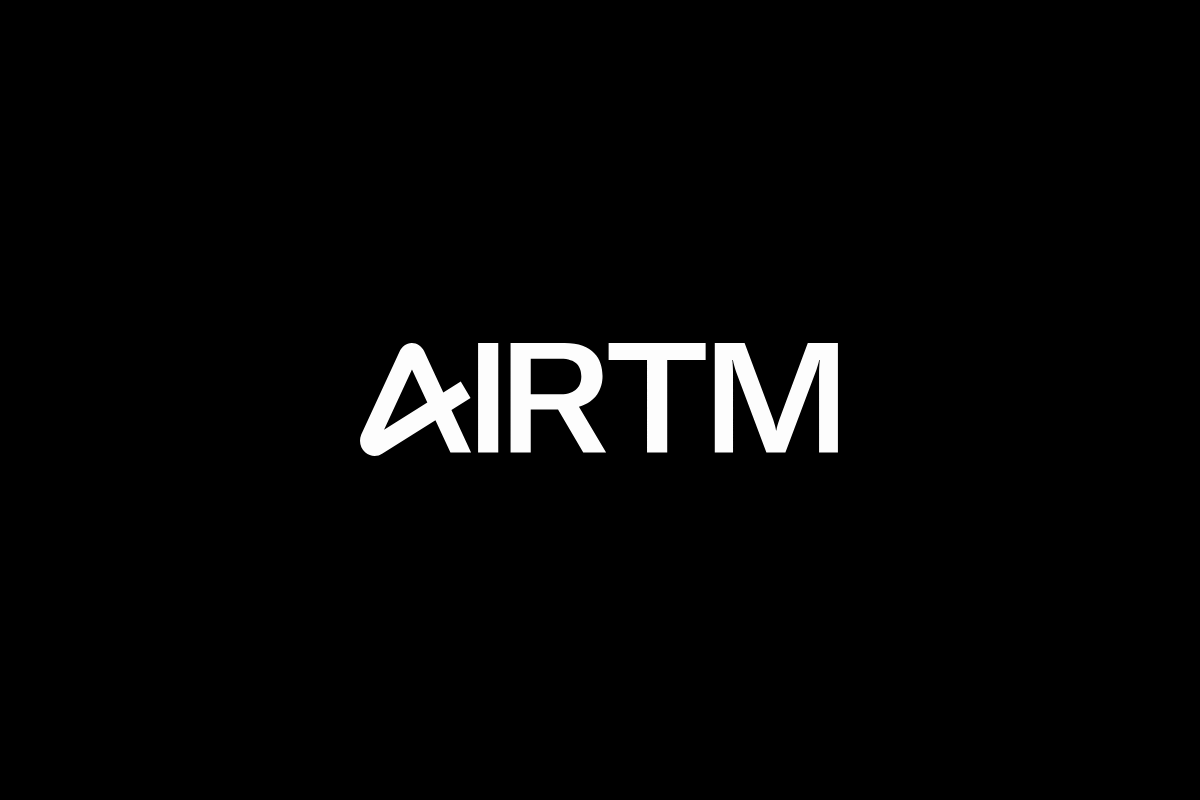Fintech
Zoom Video Shareholder Alert: Faruqi & Faruqi, LLP Encourages Investors Who Suffered Losses Exceeding $50,000 In Zoom Video Communications, Inc. To Contact The Firm

New York, New York–(Newsfile Corp. – April 20, 2020) – Faruqi & Faruqi, LLP, a leading national securities law firm, reminds investors in Zoom Video Communications, Inc. (“Zoom” or the “Company”) (NASDAQ: ZM) of the June 8, 2020 deadline to seek the role of lead plaintiff in a federal securities class action that has been filed against the Company.
Faruqi & Faruqi logo
If you invested in Zoom stock or options between April 18, 2019 and April 6, 2020 and would like to discuss your legal rights, click here: http://www.faruqilaw.com/ZM. There is no cost or obligation to you.
You can also contact us by calling Richard Gonnello toll free at 877-247-4292 or at 212-983-9330 or by sending an e-mail to [email protected].
CONTACT:
FARUQI & FARUQI, LLP
685 Third Avenue, 26th Floor
New York, NY 10017
Attn: Richard Gonnello, Esq.
[email protected]
Telephone: (877) 247-4292 or (212) 983-9330
The lawsuit has been filed in the U.S. District Court for the Northern District of California on behalf of all those who purchased Zoom securities between April 18, 2019 and April 6, 2020 (the “Class Period”). The case, Drieu v. Zoom Video Communications, Inc. et al., No. 5:20-cv-02353 was filed on April 7, 2020.
The lawsuit focuses on whether the Company and its executives violated federal securities laws by making false and/or misleading statements and/or failing to disclose that: (1) Zoom had inadequate data privacy and security measures; (2) contrary to Zoom’s assertions, the Company’s video communications service was not end-to-end encrypted; (3) as a result of all the foregoing, users of Zoom’s communications services were at an increased risk of having their personal information accessed by unauthorized parties, including Facebook; (4) usage of the Company’s video communications services was foreseeably likely to decline when the foregoing facts came to light; and (5) as a result, the Company’s public statements were materially false and misleading at all relevant times.
On July 8, 2019, during intraday trading hours, security researcher Jonathan Leitschuh linked an article published by him that day to his Twitter account, which allegedly exposed a flaw allowing hackers to take over Zoom webcams. According to the article, “[a] vulnerability in the Mac Zoom Client allows any malicious website to enable your camera without your permission,” and “[t]he flaw potentially exposes up to 750,000 companies around the world that use Zoom to conduct day-to-day business.”
On this news, the Company’s stock price fell from $91.88 per share on July 5, 2019 to $90.76 per share on July 8, 2019: a $1.12 or 1.22% drop.
Then, on July 11, 2019, public interest research center the Electronic Privacy Information Center filed a complaint against Zoom before the U.S. Federal Trade Commission (“FTC”), alleging that the Company “placed at risk the privacy and security of the users of its services,” that “Zoom intentionally designed their web conferencing service to bypass browser security settings and remotely enable a user’s web camera without the consent of the user,” and that, “[a]s a result, Zoom exposed users to the risk of remote surveillance, unwanted videocalls, and denial-of-service attacks.” The complaint also alleged that “[w]hen informed of the vulnerabilities Zoom did not act until the risks were made public, several months after the matter was brought to the company’s attention,” that “Zoom exposed its users to a wide range of harms, many of which are ongoing,” and that the Company’s “business practices amount to unfair and deceptive practices under Section 5 of the FTC Act, subject to investigation and injunction by the [FTC].”
On this news, Zoom’s stock fell $1.32 per share, or 1.42%, to close at $91.40 per share on July 11, 2019.
On March 26, 2020-in the midst of the COVID-19 pandemic and shelter-in-place orders from multiple national and local governments, as businesses increasingly turned to Zoom’s video communication software to facilitate remote work activity – Motherboard, Vice Media’s technology news subsegment, reported that Zoom’s “privacy policy do[es] [not] make clear . . . that the iOS version of the Zoom app is sending some analytics data to Facebook, even if Zoom users don’t have a Facebook account,” and that “Zoom is not forthcoming with the data collection or the transfer of it to Facebook.”
Then, on March 27, 2020, Zoom issued a statement by Defendant Yuan, disclosing “a change that [Defendants] have made regarding the use of Facebook’s SDK” after being “made aware on Wednesday, March 25, 2020, that the Facebook SDK was collecting device information unnecessary for us to provide our services.” Yuan admitted that “[t]he information collected by the Facebook SDK did not include information and activities related to meetings such as attendees, names, notes, etc., but rather included information about devices such as the mobile OS type and version, the device time zone, device OS, device model and carrier, screen size, processor cores, and disk space,” and that, “therefore [Defendants] decided to remove the Facebook SDK in [the] iOS client and have reconfigured the feature so that users will still be able to log in with Facebook via their browser.”
The next trading day, on March 30, 2020, the New York Times reported that Zoom is under scrutiny by the office of New York State Attorney General, Letitia James, “for its data privacy and security practices.” According to the article, James’s “office sent Zoom a letter asking what, if any, new security measures the company has put in place to handle increased traffic on its network and to detect hackers” in light of the recent COVID-19 pandemic.
As a result of these disclosures, the Company’s stock price fell from $151.70 on March 27, 2020 to $121.93 per share on April 2, 2020: a $29.77 or 19.62% drop.
On April 6, 2020, New York City’s Department of Education announced that it had banned the use of Zoom in the city’s classrooms, and the city’s mayor, Bill de Blasio, disclosed that there had “been an effort by the Department of Education to work with that company to ensure the privacy of our students to make sure their information could not be accessed wrongly,” but that “[t]he chancellor and the team at the Department of Education do not believe the company has cooperated.” Consequently, the city’s Department of Education instead recommended Google or Microsoft Teams for classroom communications purposes amid the state’s shelter-in-place order during the COVID-19 pandemic.
On this news, the Company’s stock price fell from $128.20 per share on April 3, 2020 to $122.94 per share on April 6, 2020: a $5.26 or 4.10% drop.
The court-appointed lead plaintiff is the investor with the largest financial interest in the relief sought by the class who is adequate and typical of class members who directs and oversees the litigation on behalf of the putative class. Any member of the putative class may move the Court to serve as lead plaintiff through counsel of their choice, or may choose to do nothing and remain an absent class member. Your ability to share in any recovery is not affected by the decision to serve as a lead plaintiff or not.
Faruqi & Faruqi, LLP also encourages anyone with information regarding Zoom’s conduct to contact the firm, including whistleblowers, former employees, shareholders and others.
Attorney Advertising. The law firm responsible for this advertisement is Faruqi & Faruqi, LLP (www.faruqilaw.com). Prior results do not guarantee or predict a similar outcome with respect to any future matter. We welcome the opportunity to discuss your particular case. All communications will be treated in a confidential manner.
Fintech
Fintech Pulse: Your Daily Industry Brief (Chime, ZBD, MiCA)

As we close out 2024, the fintech industry continues to deliver headlines that underscore its dynamism and innovation. From IPO aspirations to groundbreaking regulatory milestones, today’s updates highlight the transformative power of fintech partnerships, regulatory evolution, and disruptive technologies. Here’s what you need to know.
Chime’s Quiet Step Toward Public Markets
Chime, the U.S.-based financial technology startup best known for its digital banking services, has taken a significant step by filing confidential paperwork for an initial public offering (IPO). As one of the most valuable private fintechs in the U.S., Chime’s move could potentially signal a renewed appetite for fintech IPOs in a market that has been cautious following fluctuating valuations across the tech sector.
With a valuation that reportedly exceeded $25 billion in its last funding round, Chime’s IPO could set a new benchmark for the industry. Observers note that its strong customer base and revenue growth may make it an appealing choice for investors seeking to capitalize on the digital banking boom. However, the timing and success of the IPO will depend on broader market conditions and the regulatory landscape.
Source: Bloomberg
ZBD’s Pioneering Achievement: EU MiCA License Approval
ZBD, a fintech company specializing in Bitcoin Lightning network solutions, has made history by becoming the first to secure an EU MiCA (Markets in Crypto-Assets Regulation) license. This landmark approval by the Dutch regulator positions ZBD at the forefront of compliant crypto-fintech operations in Europe.
MiCA, which aims to harmonize the regulatory framework for crypto-assets across the EU, has been a focal point for industry players aiming to establish legitimacy and expand their offerings. ZBD’s achievement not only validates its operational rigor but also sets a precedent for other fintech firms navigating the evolving regulatory landscape.
Industry insiders view this as a strategic advantage for ZBD as it broadens its footprint in Europe. By leveraging its regulatory approval, the company can accelerate its product deployment and establish trust with institutional and retail users alike.
Source: Coindesk, PR Newswire
The Fintech-Credit Union Synergy: A Blueprint for Innovation
The convergence of fintechs and credit unions continues to reshape the financial services ecosystem. Collaborative initiatives, such as the one highlighted in the recent partnership between fintech innovators and credit unions, are proving to be a potent force in delivering tailored financial solutions.
This “dream team” approach allows credit unions to leverage fintech’s technological expertise while maintaining their community-focused ethos. Key areas of collaboration include digital payments, personalized financial management tools, and enhanced loan processing capabilities. These partnerships not only enhance member engagement but also enable credit unions to remain competitive in an increasingly digital-first financial environment.
Industry analysts emphasize that such collaborations underscore a broader trend of traditional financial institutions embracing fintech-driven solutions to bridge service gaps and foster innovation.
Source: PYMNTS
Tackling Student Loan Debt: A Fintech’s Mission
Student loan debt remains a pressing issue for millions of Americans, and a Rochester-based fintech aims to offer relief through its cloud-based platform. This innovative solution is designed to simplify loan management and provide borrowers with actionable insights to reduce their debt burden.
The platform’s features include repayment optimization tools, personalized financial education, and seamless integration with loan servicers. By addressing the complexities of student loan management, this fintech is empowering borrowers to make informed decisions and achieve financial stability.
As the student loan crisis continues to evolve, solutions like this highlight the critical role fintech can play in addressing systemic financial challenges while fostering financial literacy and inclusion.
Source: RBJ
Industry Implications and Takeaways
Today’s updates underscore several key themes shaping the fintech landscape:
- Regulatory Milestones: ZBD’s MiCA license approval exemplifies the importance of regulatory compliance in unlocking growth opportunities.
- Strategic Partnerships: The collaboration between fintechs and credit unions demonstrates the value of combining technological innovation with traditional financial models to drive customer-centric solutions.
- Market Opportunities: Chime’s IPO move reflects a potential revival in fintech public offerings, signaling confidence in the sector’s long-term prospects.
- Social Impact: Fintech’s ability to tackle systemic issues, such as student loan debt, showcases its role as a force for positive change.
The post Fintech Pulse: Your Daily Industry Brief (Chime, ZBD, MiCA) appeared first on News, Events, Advertising Options.
Fintech
SPAYZ.io prepares for iFX EXPO Dubai 2025

Leading global payments platform SPAYZ.io has confirmed it will be attending iFX EXPO Dubai 2025 on 14 to 16 January. Exhibiting at Stand 64 at Trade Centre Dubai, SPAYZ.io’s team of professionals will be on hand providing live demonstrations of its renowned payment services for payment providers. Attendees will also receive exclusive insight into SPAYZ.io’s plans for 2025 alongside early early access to its upcoming plans for the new year.
SPAYZ.io delivers a host of payment solutions that leverage the latest technological innovations and open access to the fastest growing emerging markets across Africa, Europe and Asia. Over the past year, there has been huge demand for its Open Banking and local payment method services, alongside bank transfers, mass payouts, online banking and e-wallets.
Yana Thakurta, Head of Business Development at SPAYZ.io commented: “We look forward to once again participating at iFX Dubai to expand our network of partners and clients. It’s a fantastic way to kick off the year, connecting with thousands of industry leaders from FOREX platforms to trading companies, and everything in between.
“Our key goal for iFX Dubai EXPO 2025 is to expand our portfolio of solutions and geographies. We’re using this as an opportunity to partner with like-minded entities who share our ambition to provide payment solutions that are truly global.”
Come meet SPAYZ.io’s team at the Trade Centre Dubai at Stand 64. You can also book a meeting slot with a member of a team.
The post SPAYZ.io prepares for iFX EXPO Dubai 2025 appeared first on News, Events, Advertising Options.
Fintech
Airtm Enhances Its Board of Directors with Two Strategic Appointments

Airtm, the most connected digital dollar account in the world, is proud to announce the addition of two distinguished industry leaders to its Board of Directors: Rafael de la Vega, Global SVP of Partnerships at Auctane, and Shivani Siroya, CEO & Founder of Tala. These appointments reflect Airtm’s commitment to innovation and financial inclusion as the company enters its next phase of growth.
“We are thrilled to welcome Rafael and Shivani to Airtm’s Board of Directors,” said Ruben Galindo Steckel, Co-founder and CEO of Airtm. “Their unique perspectives and proven track records will be invaluable as we continue scaling our platform to empower individuals and businesses in emerging markets. Together, we’ll push the boundaries of financial inclusion and innovation to create a more connected and equitable global economy. Rafael and Shivani bring a wealth of experience and strategic insight that will strengthen Airtm’s mission to connect emerging economies with the global market.”
Rafael de la Vega, a seasoned leader in fintech global partnerships and technology innovation, is currently the Global SVP of Partnerships at Auctane. With a proven track record of delivering scalable, impactful solutions at the intersection of fintech, innovation, and commerce, Rafael’s expertise will be pivotal as Airtm continues to grow. “Airtm has built a platform that breaks down barriers and opens up opportunities for people in emerging economies to connect to global markets. I am excited to contribute to its growth and help further its mission of fostering financial inclusion on a global scale,” said Rafael.
Shivani Siroya, CEO and Founder of Tala, is a pioneer in financial technology, renowned for empowering underserved communities through access to credit and essential financial tools. Her leadership in leveraging data-driven innovation aligns seamlessly with Airtm’s vision of creating more equitable financial opportunities. “Empowering underserved communities has always been at the core of my work, and Airtm’s mission resonates deeply with me. I’m thrilled to join the Board and work alongside such a dynamic team to expand access to financial tools that truly make a difference in people’s lives,” said Shivani.
The post Airtm Enhances Its Board of Directors with Two Strategic Appointments appeared first on News, Events, Advertising Options.
-

 Fintech6 days ago
Fintech6 days agoFintech Pulse: Your Daily Industry Brief (Revolut, Bestow, Advyzon, Tyme Group, Nubank)
-

 Fintech4 days ago
Fintech4 days agoFintech Pulse: Your Daily Industry Brief (Chime, ZBD, MiCA)
-

 Fintech7 days ago
Fintech7 days agoAsian Financial Forum returns as region’s first major international financial assembly in 2025
-

 Fintech PR3 days ago
Fintech PR3 days agoAccording to Tickmill survey, 3 in 10 Britons in economic difficulty: Purchasing power down 41% since 2004
-

 Fintech5 days ago
Fintech5 days agoAirtm Enhances Its Board of Directors with Two Strategic Appointments
-

 Fintech PR3 days ago
Fintech PR3 days agoPresident Emmerson Mnangagwa met this week with Zambia’s former Vice President and Special Envoy Enoch Kavindele to discuss SADC’s candidate for the AfDB
-

 Fintech5 days ago
Fintech5 days agoSPAYZ.io prepares for iFX EXPO Dubai 2025
-

 Fintech PR3 days ago
Fintech PR3 days agoStay Cyber Safe This Holiday Season: Heimdal’s Checklist for Business Security








